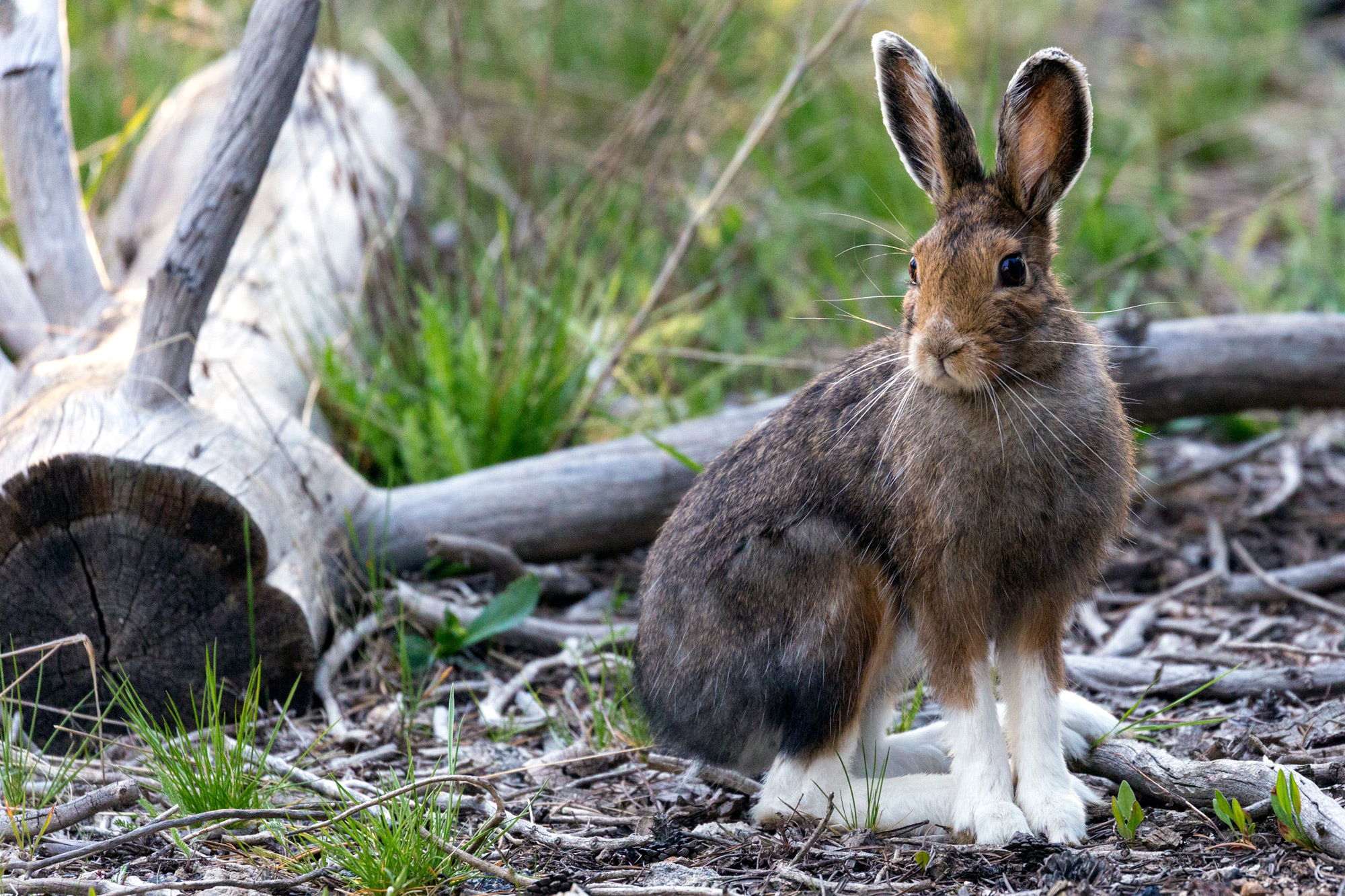Rabbit
Rabbits and hares have been darting through Alberta's varied landscapes for millennia. With a few distinct species present, these creatures play a vital role in the local ecosystem. Whether serving as prey for various predators or being utilized for their culinary and cultural significance, these fleet-footed lagomorphs have a rich legacy in Alberta.

About
Alberta is home to several species of rabbits and hares, including:
- Snowshoe Hare (Lepus americanus): Recognizable by its winter-white coat, it’s a primary prey for species like the lynx.
- White-tailed Jackrabbit (Lepus townsendii): Often found in open habitats, its fur also turns white in winter.
- Mountain Cottontail (Sylvilagus nuttallii): Common in the southern and western parts of Alberta, this rabbit prefers brushy or wooded cover.
These species have varying diets depending on the season but mainly consist of grasses, forbs, and woody plants. Their adaptability ensures survival in diverse environments, from dense woods to urban green spaces.
History
For Indigenous peoples of Alberta, rabbits and hares have been longstanding sources of sustenance and materials. From creating warm garments with their pelts to employing their sinew for crafting, these creatures have sustained life in various ways. The rabbit and hare also carry spiritual and symbolic resonance in many Indigenous stories and teachings that are shared and celebrated today.
European settlers brought additional pressures on local populations through habitat change and hunting, but the resilient nature of these species ensured their continued presence. Today, they still have cultural and recreational roles, whether it's in traditional hare trapping or on the modern farm.
Ways To Cook
The meat of both rabbits and hares is appreciated for its lean, mild, and slightly gamey flavour. While often compared to chicken, each species offers a unique taste. Rabbit and hare can be braised, grilled, or roasted. Traditional European dishes, like rabbit in mustard sauce, have influenced Canadian culinary practices. Indigenous methods in Alberta, passed down through generations, often include roasting or stewing the meat, seasoned with regional herbs. Modern Albertan cuisine sometimes features rabbit or hare as a delicacy, reflecting its diverse and historical significance.
Some Of Our Favourite Videos
Alberta Rabbit Producers
Rocky Mountain Game Meats
About this producerFoods from this producer:
-
- Domesticated
- Fur
Beef
-
- Domesticated
- Feather
Chicken
-
- Domesticated
- Fur
Lamb
-
- Domesticated
- Fur
Pork
-
- Wild Game
- Fur
Bison
-
- Wild Game
- Fur
Venison
-
- Wild Game
- Fur
Wild Boar
-
- Wild Game
- Fur
Pronghorn
-
- Wild Game
- Fur
Rabbit
-
- Wild Game
- Feather
Duck
-
- Wild Game
- Feather
Partridge
-
- Wild Game
- Feather
Pheasant
-
- Domesticated
- Feather
Quail
Hogs & Horns Homestead
About this producerFoods from this producer:
